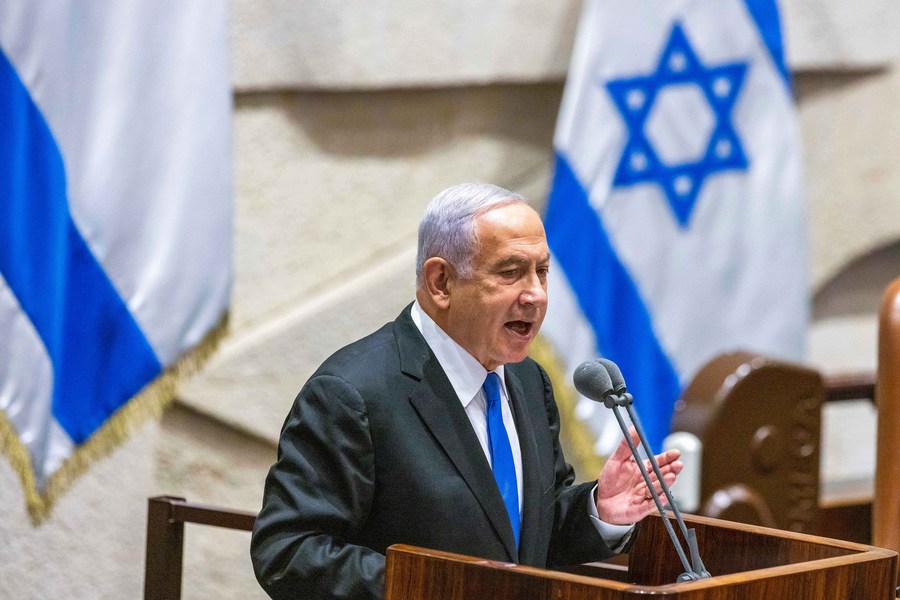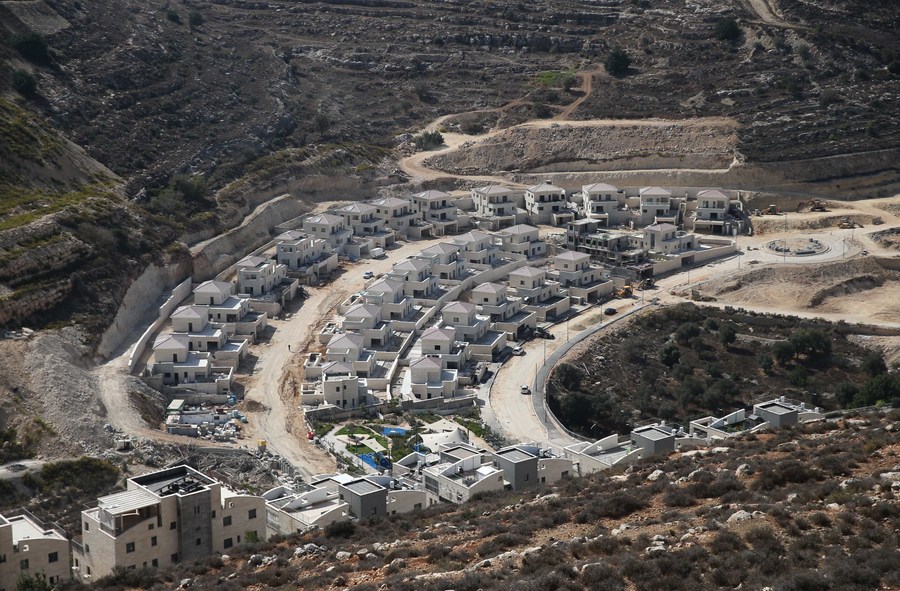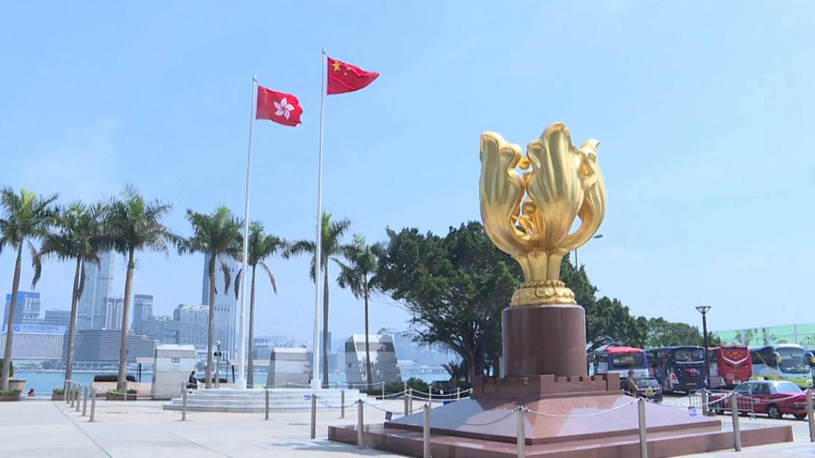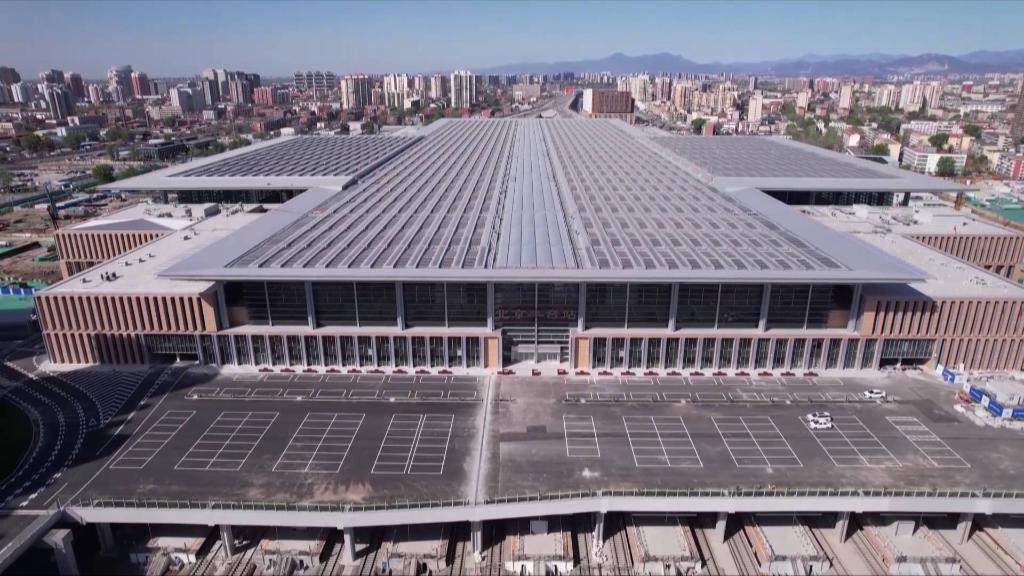
Israeli Prime Minister Naftali Bennett (L) and Alternate Prime Minister Yair Lapid make a joint statement to the press in Jerusalem, on June 20, 2022. (JINI via Xinhua)
"Something great is happening here. We are getting rid of the worst government in Israel's history," said former Israeli Prime Minister Benjamin Netanyahu while Israel braces for new elections as the fragile coalition government collapses.
by Keren Setton
JERUSALEM, June 21 (Xinhua) -- Israel is heading to a fifth election campaign within three years after Prime Minister Naftali Bennett announced on Monday his coalition's decision to dissolve the parliament.
The announcement came after weeks of bitter struggle within the coalition to overcome its imploding instability. When Bennett was sworn in a little more than a year ago, many already believed his government would not last long.
The date of the new elections, if the dissolution is confirmed, is expected to be determined later this week, but it is widely believed that they will be held at the end of October or in early November.
As with the previous campaigns, former Israeli Prime Minister Benjamin Netanyahu, who holds the record of the country's longest-serving leader, should take the center stage as the most divisive and polarizing political figure in the state.

Former Israeli Prime Minister Benjamin Netanyahu, now the leader of the opposition and head of the Likud party, speaks at the Knesset (parliament) in Jerusalem, on May 11, 2022. (JINI via Xinhua)
Netanyahu has become a contentious figure even within his own right-wing bloc as he is standing trial on several charges of corruption. Current polls show he is the front-runner of Likud, which is the largest single party in the parliament but has yet to muster the 61 mandates needed to form a ruling coalition.
"There are so many variables which make it hard to know whether it will be possible for him (Netanyahu) to even form a government," said Yonatan Freeman at the Department of Political Science of the Hebrew University in Jerusalem.
"There is a tie between the Netanyahu bloc and the anti-Netanyahu bloc," said Assaf Shapira, director of the Political Reform program at the Israel Democracy Institute.
The former Israeli prime minister, however, appeared elated as he spoke to reporters after Bennett's announcement.
"Something great is happening here. We are getting rid of the worst government in Israel's history," said Netanyahu. "I intend to form a strong, nationalist and stable government."

Photo taken on Oct. 27, 2021 shows a view of the Israeli settlement in Givat Zeev near Jerusalem. (Photo by Muammar Awad/Xinhua)
Bennett, together with alternate Prime Minister Yair Lapid, led a fragile coalition with a myriad of parties whose only common denominator was a disdain for Netanyahu.
Lapid, who heads the Yesh Atid party, will be the interim prime minister until elections. He is also Netanyahu's main rival, leading the second largest party in Israel.
"It was not only a government with a parliamentary minority, but it was incoherent," Shapira told Xinhua. "It was very heterogenic and very fragmented from within. This combination made it impossible.
The last straw for Bennett's government is thought to be the impending expiry of the Israeli law that give Jewish settlers in the West Bank special legal status.
The law, which basically creates two separate legal systems for Palestinians and Israelis in the West Bank, is set to expire at the end of this month, but Bennett does not have a majority within his government to pass a bill to extend it. Dovish members of the coalition who normally oppose any law that supports Israeli settlements are now willing to support the law in order to save the government, but it is still not enough.

Palestinians protesting against Israeli settlement expansion clash with Israeli soldiers at the Tayaseer checkpoint near the West Bank City of Tubas, on June 6, 2022. (Photo by Ayman Nobani/Xinhua)
Bennett said the expiry of the law would have caused "grave security perils and constitutional chaos" which ultimately brought him to the decision to dissolve parliament, because the law remains in effect under an interim government.
With polls showing deadlock, Israel could be heading to yet another lengthy political crisis.
"The political map has not changed," said Shapira. "The polarization in society has not changed and has only worsened in the political system."
After one year without an election campaign, there is a significant chance the country will experience back-to-back elections again.
"It really depends on who is going to be running and what the issue of the day will be," Freeman told Xinhua. "This is the Middle East. Every minute we can have an event that really changes the whole focus of the elections." ■












